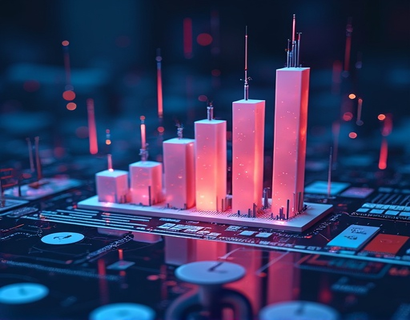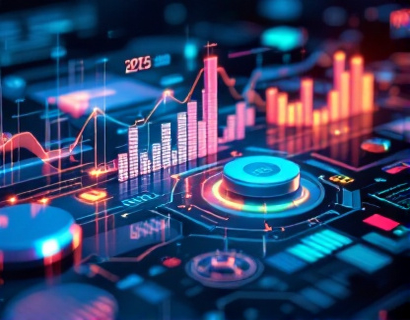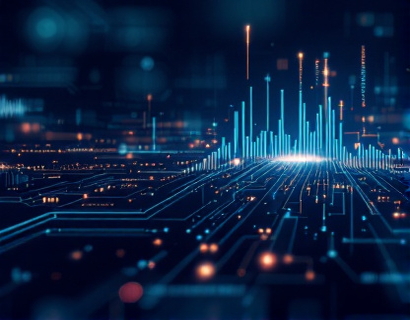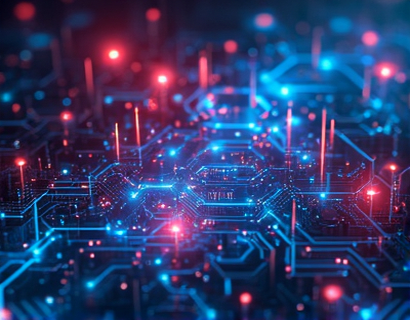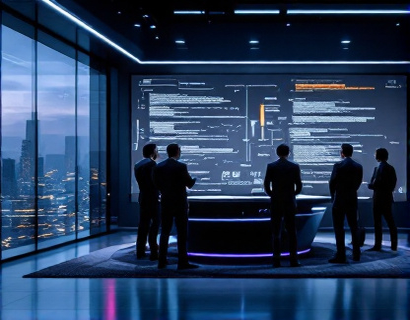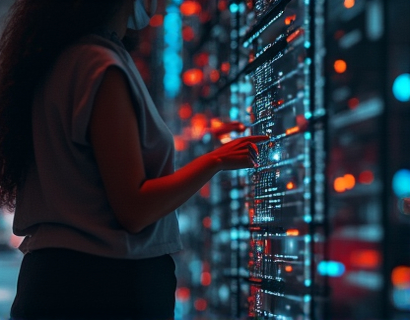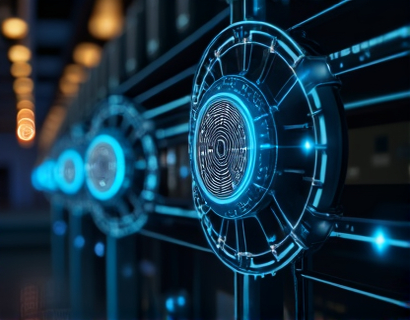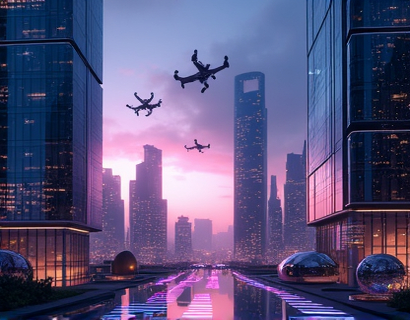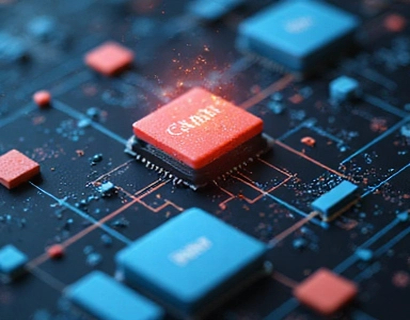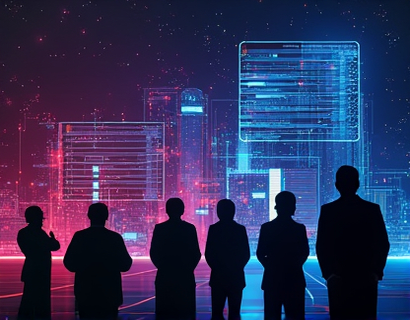AI-Powered Marketing Agents: Revolutionizing Business Growth Through Intelligent Automation
In the rapidly evolving landscape of digital marketing, businesses are constantly seeking innovative solutions to stay ahead of the competition. One of the most transformative advancements in this domain is the emergence of AI-powered marketing agents. These intelligent tools leverage cutting-edge artificial intelligence to automate and optimize marketing strategies, significantly enhancing customer engagement and return on investment (ROI). By integrating AI-powered marketing agents, businesses can streamline their operations, allowing them to focus on core activities while these agents handle the intricacies of marketing growth.
The Role of AI in Modern Marketing
Artificial intelligence has become an indispensable asset in the marketing world. Unlike traditional marketing methods that rely heavily on human intuition and manual effort, AI-powered solutions offer data-driven insights and automated processes. These agents can analyze vast amounts of data in real-time, identify patterns, and make informed decisions without human intervention. This capability is particularly valuable in today's fast-paced digital environment where market conditions and consumer behaviors change rapidly.
Key Features of AI-Powered Marketing Agents
AI-powered marketing agents are equipped with a suite of advanced features designed to enhance marketing efficiency and effectiveness. Some of the key features include:
- Data Analysis and Insights: These agents can process and analyze large datasets to provide actionable insights. They identify trends, customer preferences, and market dynamics, enabling marketers to make informed decisions.
- Automated Campaign Management: AI agents can create, manage, and optimize marketing campaigns across multiple channels. They adjust strategies based on real-time performance data, ensuring maximum impact.
- Personalized Customer Engagement: By leveraging machine learning algorithms, these agents can create highly personalized customer experiences. They tailor content, offers, and communications to individual preferences, increasing engagement and loyalty.
- Predictive Analytics: AI agents use predictive models to forecast future trends and customer behaviors. This foresight allows businesses to proactively adapt their strategies and stay ahead of the competition.
- Chatbots and Virtual Assistants: These AI-driven tools provide 24/7 customer support, handling queries and transactions efficiently. They enhance customer satisfaction and reduce operational costs.
Enhancing Customer Engagement
One of the most significant benefits of AI-powered marketing agents is their ability to enhance customer engagement. Traditional marketing methods often struggle to deliver personalized experiences at scale. However, AI agents can analyze customer data to understand individual preferences and behaviors, enabling highly targeted and relevant interactions. This personalization not only improves customer satisfaction but also fosters stronger relationships and higher customer lifetime value.
For instance, AI-driven chatbots can engage customers in real-time, providing personalized recommendations and support. These interactions are seamless and efficient, leading to higher conversion rates and customer loyalty. Moreover, AI agents can monitor customer feedback and sentiment, allowing businesses to quickly address issues and improve their offerings.
Maximizing ROI Through Intelligent Automation
ROI is a critical metric for any business, and AI-powered marketing agents excel in maximizing this value. By automating repetitive and time-consuming tasks, these agents free up marketing teams to focus on strategic initiatives that drive growth. Automation reduces the risk of human error and ensures consistency in campaign execution, leading to more reliable and predictable results.
AI agents optimize marketing spend by identifying the most effective channels and tactics based on data-driven insights. They continuously test and refine strategies, ensuring that every dollar invested yields the best possible return. For example, AI can dynamically adjust budget allocations across different campaigns and platforms, maximizing the impact of each marketing dollar.
Streamlining Marketing Operations
The integration of AI-powered marketing agents significantly streamlines marketing operations. These agents handle a wide range of tasks, from content creation and distribution to performance monitoring and reporting. This automation reduces the workload on marketing teams, allowing them to concentrate on high-value activities such as strategy development, creative thinking, and stakeholder communication.
Moreover, AI agents provide real-time dashboards and reports, offering transparent visibility into campaign performance. Marketers can quickly identify what's working and what needs adjustment, enabling agile and responsive decision-making. This level of insight and control is invaluable in maintaining a competitive edge in the market.
Case Studies and Success Stories
Several businesses have already reaped the benefits of AI-powered marketing agents. For example, a retail company implemented an AI-driven customer engagement platform that personalized product recommendations and targeted promotions. As a result, they saw a 30% increase in sales and a 25% improvement in customer retention rates. Another example is a financial services firm that used AI to optimize its lead generation process. The AI agent identified high-quality leads with precision, leading to a 40% increase in conversion rates.
These success stories highlight the transformative potential of AI in marketing. By leveraging advanced technologies, businesses can achieve significant improvements in engagement, efficiency, and ROI.
Challenges and Considerations
While the benefits of AI-powered marketing agents are clear, there are several challenges and considerations that businesses should be aware of. One of the primary concerns is data privacy and security. AI agents require access to vast amounts of customer data, and ensuring this data is handled securely and in compliance with regulations is crucial. Businesses must implement robust data governance practices and use trusted AI solutions that prioritize security.
Another consideration is the initial investment and integration effort. Implementing AI-powered marketing agents can require significant upfront costs and technical expertise. However, the long-term benefits often outweigh these initial challenges. It's essential for businesses to conduct a thorough cost-benefit analysis and plan for a phased implementation to manage the transition smoothly.
The Future of AI in Marketing
The future of AI in marketing is promising, with ongoing advancements expected to further enhance the capabilities of AI-powered agents. Emerging technologies such as natural language processing, computer vision, and reinforcement learning will continue to drive innovation in this space. AI agents will become even more sophisticated, capable of handling more complex tasks and providing deeper insights.
As AI continues to evolve, businesses that embrace these technologies will be better positioned to thrive in a competitive market. The ability to automate and optimize marketing processes will not only improve efficiency but also unlock new opportunities for growth and innovation.
Conclusion
AI-powered marketing agents represent a significant leap forward in the field of digital marketing. By automating and optimizing marketing strategies, these agents enhance customer engagement, maximize ROI, and streamline operations. Businesses that adopt AI-powered solutions can focus on their core activities while these intelligent agents drive growth and success. As the technology continues to advance, the potential for AI in marketing is vast, offering exciting possibilities for the future.



